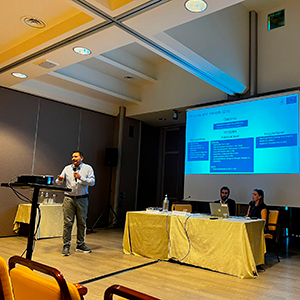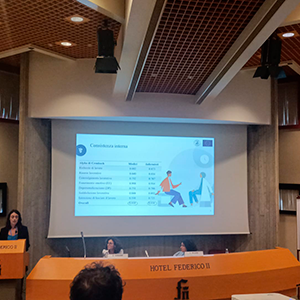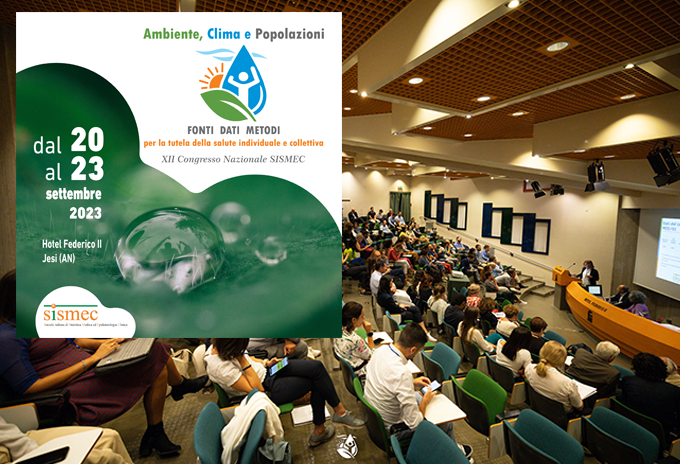Laura Maniscalco and Marco Enea from the Università degli Studi di Palermo presented the results of a Project METEOR survey, which explains the complex dynamics of job resignations by healthcare professionals, at the 12th National Congress of the Italian Society of Medical Statistics and Clinical Epidemiology (Congresso Nazionale Società Italiana di Statistica Medica ed Epidemiologia Clinica – SISMEC).
The METEOR survey, conducted in eight hospitals across four countries (Belgium, Italy, the Netherlands and Poland), aimed to estimate the prevalence of the intention to leave both the hospital and the profession among nurses and physicians, along with assessing the determinants of these decisions. A total of 381 responses were obtained for physicians, and 1,351 for nurses. The data show that 17% of doctors and 13.6% of nurses are considering leaving their jobs.
In her presentation, Laura Maniscalco showed that a challenging hospital environment significantly contributes to increased intentions to leave among doctors. By contrast, for nurses the intention appears to be rooted in dissatisfaction with professional practice rather than the hospital context. Furthermore, the survey results indicate that work engagement is a crucial determinant for nurses, while depersonalisation plays a pivotal role in both nurses’ and physicians’ intentions to leave.
Marco Enea showed that the METEOR survey identified significant individual and work environment characteristics that play a role in explaining the intention to leave. While some differences exist from country to country, depersonalisation and job dissatisfaction were found to be strong determinants of the intention to leave.
Both speakers stressed that recruitment and retention policies at the micro, meso and macro levels are imperative. Specifically, prioritising job satisfaction, fostering work engagement, and nurturing a positive working climate are strategic factors for promoting job retention. Nurses and physicians require tailored policies. It is particularly important to support healthcare workers who are at high risk of leaving their profession, such as younger nurses.Extended abstracts of the presentations are avaliable here and here.







